![Automate Reports with AI: Guide [2024]](https://assets.seobotai.com/zemith.com/67159b33b036cc7bb9cef9d3-1729472353716.webp)
Automate Reports with AI: Guide [2024]
AI is revolutionizing report automation in 2024. Here's what you need to know:
- AI slashes report creation time from days to minutes
- It uncovers trends humans often miss
- Reports update in real-time as new data comes in
Key AI reporting features:
| Feature | Benefit |
|---|---|
| Natural Language Processing | Writes reports in plain English |
| Predictive Analytics | Forecasts future trends |
| Custom Dashboards | Personalizes views for team members |
| Real-time Updates | Keeps data current |
| Automated Insights | Highlights key findings |
To get started with AI reporting:
- Choose reports to automate (frequent, data-heavy, complex)
- Clean and standardize your data
- Select an AI tool that fits your needs
- Set up data sources and templates
- Implement human checks on AI output
- Customize reports for different audiences
- Monitor performance and gather feedback
Remember: AI reporting isn't perfect. It needs human oversight for context and accuracy. But when done right, it can dramatically boost your reporting efficiency and insights.
Related video from YouTube
How AI Automates Reports
AI is changing report creation. It's faster and often better than manual methods.
AI Basics for Reports
Here's how AI handles reporting:
1. Data Collection: AI grabs info from everywhere at once.
2. Data Cleaning: It fixes mistakes and fills blanks.
3. Analysis: AI finds patterns humans might miss.
4. Report Creation: It turns data into clear reports.
AI vs. Manual Reports
Let's compare:
| Feature | AI Reports | Manual Reports |
|---|---|---|
| Speed | Minutes | Days or weeks |
| Accuracy | High | Can have errors |
| Data volume | Millions of points | Limited |
| Real-time updates | Yes | No |
| Cost | High upfront, low long-term | Low upfront, high long-term |
AI excels with big data. Minute Media uses AI to track 700,000+ metrics. You can't do that by hand.
But AI isn't perfect. It needs human checks for context. That's why many use both AI and humans.
"The real technical debt we all may be accruing is the lack of integration in the organizational fabric itself as AI capabilities adapt rapidly." - Satya Nadella, Microsoft CEO
Nadella's right: companies must adapt to use AI well. It's not just about having AI - it's about using it right.
Want to start? Zemith offers AI tools for report automation. Their platform can help streamline your reporting.
Getting Ready for AI Reports
Let's prep for AI-powered reporting. Here's how to set yourself up for success:
Picking Reports to Automate
Not all reports are AI-friendly. Here's what to look for:
- Frequent reports: Daily or weekly? Perfect.
- Big data: Thousands of data points? AI loves it.
- Complex stuff: Multiple data sources or tricky calculations? AI's got you.
- Need for speed: Real-time updates? AI can handle it.
Think about a sales team's weekly performance report. It's got tons of CRM data and needs to be done fast. That's an AI sweet spot.
Making Your Data Shine
Garbage in, garbage out. Here's how to clean up your data act:
- Scrub it clean: No duplicates, no errors, no gaps.
- Same format, please: All data should look alike.
- Catch mistakes early: Use validation tools.
- Teach your team: Everyone needs to know how to input data right.
- ETL like a pro: It can boost accuracy by 25%.
| Step | What It Does |
|---|---|
| Scrub data | Cuts errors |
| Standardize | Makes data consistent |
| Validate | Catches oops moments |
| Train team | Fewer human slip-ups |
| Pro ETL | 25% more accurate |
Here's a wake-up call: Gartner says bad data costs companies $15 million a year on average. Ouch.
Picking an AI Report Tool
Want to supercharge your reporting with AI? Let's break down what matters and check out some options.
What to Look For
Here's what you need in a solid AI report tool:
- Plays nice with your data
- Bends to fit your needs
- Easy for everyone to use
- Grows as you grow
- Keeps your data safe
Let's compare some popular tools:
| Tool | Standout Feature | Perfect For |
|---|---|---|
| Tableau | Makes data pretty | Big, messy datasets |
| Power BI | BFFs with Microsoft | Office 365 fans |
| Domo | DIY analytics | Real-time data junkies |
| Qlik | Smart data connections | Data explorers |
Zemith AI Tools: The Rundown
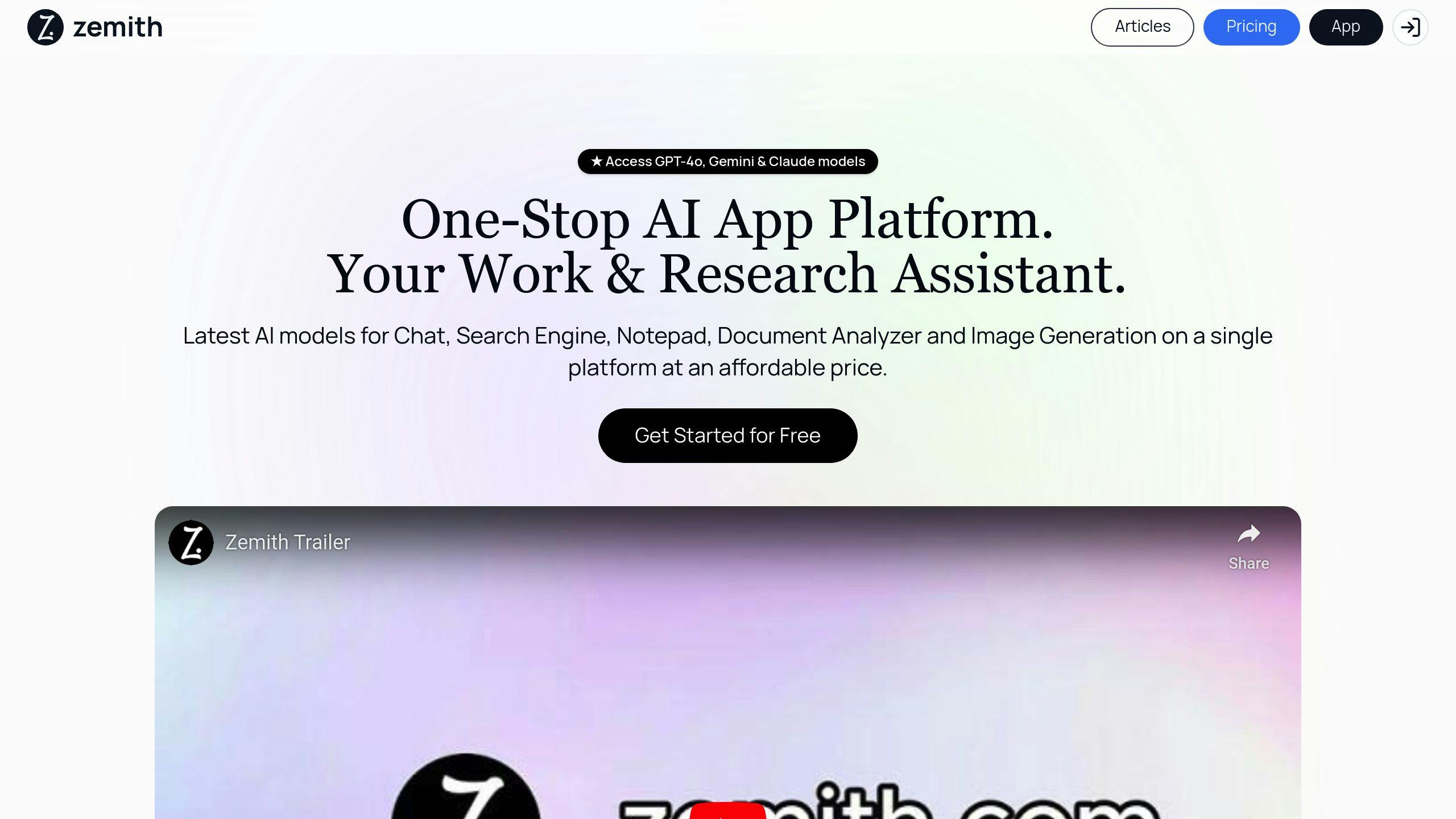
Zemith's got some cool AI tricks up its sleeve:
- Top-notch AI models (GPT, Gemini, Claude)
- AI-powered search
- Interactive document analysis
- AI note-taking boost
Pricing? Simple:
- Free: 20 credits/month, basic models
- Plus: $12/month, 2000 credits, all the bells and whistles
Just dipping your toes in AI reporting? Try Zemith's free plan. Need more juice? The Plus plan's got you covered.
Setting Up AI Report Automation
Let's get your AI-powered reports up and running. Here's how:
Tool Setup Steps
- Pick Your AI Tool: Choose one that fits. Zemith, for example, gives you GPT, Gemini, and Claude models, plus AI search and document analysis.
- Sign Up and Install: Create an account and download what you need. Zemith offers a free plan (20 credits/month) or Plus ($12/month) for more features.
- Tweak Your Settings: Set your preferences like report frequency and data sources. Follow your tool's specific instructions.
Adding Data Sources
Connecting your data is key. Here's the process:
- List Your Sources: What do you need for your reports? Think sales databases, CRM systems, marketing analytics, and financial software.
- Connect Everything: Use your AI tool's built-in integrations or data platforms like Talend or Informatica.
- Set Up APIs: For custom sources, you might need APIs. Get your IT team on board for this.
- Test It Out: Run some test reports to make sure your data's flowing right.
- Build Templates: Create report templates with data placeholders. These are your blueprints.
"Integrating these sources lets businesses automate data retrieval for reporting", says a Talend data expert.
sbb-itb-4f108ae
Tips for AI Report Success
Want your AI reports to actually work? Here's how:
Human Checks on AI Reports
AI's fast, but it's not perfect. You need people to double-check things:
- AI can mess up data. Humans catch these mistakes.
- People know if a report's useful for your business.
- Regular checks keep your AI system trustworthy.
Remember Amazon's 2024 mess-up? Their AI made product listings like "I cannot fulfill that request." Customers hated it. That's why you need human eyes on AI work.
Making Reports Fit Different Needs
Not all reports work for everyone. Here's how to fix that:
1. Know Your Audience
Sales teams need different info than bosses. Change your reports to fit.
2. Customize Templates
Make report layouts you can tweak easily.
3. Focus on Key Metrics
Show the most important numbers for each group.
Function Growth, a marketing agency, did this right:
"Improvado changed our marketing analytics game. We could focus on strategy, not data management", said Adam Orris, Director of Analytics at Function Growth.
Their results?
- Marketing team 30% more productive
- Saved up to 6 hours a week on reports
Advanced AI Reporting Methods
AI is shaking up report-making. Here's how:
NLP in Reports
NLP helps machines get human language. This makes reports a breeze to use.
NLP perks:
- Whips up quick summaries
- Spots the important stuff
- Answers your questions about the report
JPMorgan Chase's NLP chatbot slashed data analysis time by 40%. Execs could chat with it about complex financial data in plain English.
Interactive Charts
Forget static charts. Interactive ones let users dig into data themselves.
Why they're cool:
- Click for more details
- Tweak the data view
- Make numbers less boring
| Static Charts | Interactive Charts |
|---|---|
| No user control | High user control |
| Limited data | Tons of data |
| Snooze-fest | Engaging |
| Manual updates | Can update automatically |
Walmart uses AI for weekly store reports with interactive charts. Managers click around to see sales details.
Quick tips:
- Start small with NLP
- Train your team on new AI tools
- Ask for user feedback
- Keep up with AI improvements
AI reporting isn't just fancy tech - it's about making data work for you.
Solving Common AI Report Problems
AI report automation can be tricky. Let's look at two big issues:
Keeping Data Safe
AI needs data. But that data's often sensitive. Here's how to protect it:
- Encrypt everything: Lock down data at rest and in transit. Hackers can't read what they can't understand.
- Limit access: Give people only what they need. Use role-based controls to keep data on a need-to-know basis.
- Train your team: People are often the weak link. Teach them about phishing, strong passwords, and proper data handling.
- Check often: Run regular security audits. Find and fix weak spots fast.
"Data security isn't just about tech. It's about people and processes too." - Cybersecurity Expert
Handling Big Data Sets
AI loves big data. But big data can be a pain. Here's how to deal:
| Problem | Fix |
|---|---|
| Slow processing | Use cloud power |
| Bad data | Clean it first |
| High storage costs | Compress and tier |
| Too much info | Focus on key metrics |
Real-world example:
Walmart uses AI for inventory. They crunch data on:
- Weather
- Local events
- Social media trends
This helps them stock smart. They'll boost water and emergency supplies before a hurricane hits.
Quick tips:
- Start small
- Visualize data
- Automate cleaning
- Keep learning
AI and big data move fast. Stay on your toes.
Checking AI Report Performance
Let's look at how to make sure your AI reports are doing their job.
Measuring Success
Track these metrics:
| Metric | What It Means | Why It Matters |
|---|---|---|
| Time Saved | Hours freed up | Shows efficiency gains |
| Accuracy | % of correct data | Ensures reliable insights |
| Cost per Ticket | Expense per support issue | Tracks ROI |
| Automation Rate | % of fully automated reports | Measures AI adoption |
| CSAT | User happiness | Indicates report quality |
Real-world wins:
DiscoverCars saved €128,000 with their AI chatbot, Carla. Stitch Fix cut average handle time by 29% across all support channels.
Getting and Using Feedback
User input is gold. Here's how to get it:
1. Ask the right questions
Use surveys for CSAT and Customer Effort Score (CES).
2. Use AI to analyze feedback
AI can process comments fast, spot patterns, and tag feedback consistently.
3. Act on what you learn
Fix issues, add features, and tweak reports based on user needs.
4. Keep the feedback loop going
Collect input often, share improvements, and ask for thoughts on changes.
AI reports need human oversight. Regular checks keep your system sharp and useful.
What's Next for AI Reporting
AI reporting is about to get a major upgrade. Here's what's coming:
New AI Tools on the Horizon
- DIY Language Models: Soon, you'll be able to customize powerful AI models without coding. Google and OpenAI are leading the charge.
- AI-Made Videos: Startups like Runway are pushing the boundaries. Their Gen-2 model is cranking out videos that look almost pro-level.
- Smart Data Cleaners: New AI tools will automatically scrub and enhance your data. Say goodbye to messy datasets.
| Tool | What It Does | Why It Matters |
|---|---|---|
| Custom LLMs | Lets you tweak AI models without coding | More teams can use AI reporting |
| Gen-2 (Runway) | Makes high-quality videos | Better visual reports |
| AI Data Cleaners | Preps data automatically | More accurate reports |
The Future of AI in Reporting
Get ready for some big shifts:
1. AI Skills Become Must-Haves
Companies that build AI expertise in-house will pull ahead. As Stefanie Babka from Merck puts it:
"Data culture can't be bought or dictated. You need to win the head, the heart and the herd."
2. AI Could Mean Shorter Work Weeks
Some companies are using AI to cut hours without slowing down. This trend might catch on as AI takes over more routine tasks.
3. Open-Source AI Challenges Big Tech
Open-source models are giving proprietary ones a run for their money. They offer more flexibility and transparency.
4. AI Integrators Take the Lead
Marco Di Sazio from Bankhaus Metzler predicts:
"In 2024, AI integrators will show how they make AI accessible to end users."
Companies that blend AI seamlessly into existing systems will thrive.
5. Ethical AI Becomes Critical
The EU's AI Act is pushing for more transparency and accountability. European firms might gain an edge in building trust.
6. AI Reshapes Business Models
Accenture found that 75% of business leaders think they'll be out of business in five years if they can't scale AI effectively.
To stay ahead:
- Invest in diverse, high-quality data
- Document your AI clearly
- Explore ethical AI guidelines
- Adapt your business model to AI-driven productivity gains
The future of AI reporting looks bright, but it'll take smart planning and flexibility to make the most of it.
Conclusion
AI report automation is changing the game for business data and decision-making. Here's the scoop:
AI tools crunch numbers fast, freeing up your team. They cut down on mistakes and spot things we might miss.
Why Jump on the AI Reporting Train?
1. It's a game-changer: Amazon's using AI for cross-selling. Result? 35% of their revenue.
2. Keep up or get left behind: 75% of business bigwigs think they'll be toast in 5 years without scaling AI. Yikes.
3. Do what humans do best: AI handles the boring stuff. Your team? They get to tackle the cool problems.
"Data culture can't be bought or dictated. You need to win the head, the heart and the herd." - Stefanie Babka, Merck
4. Smarter choices: AI reports give you the good stuff - clear, actionable insights.
| Perk | AI's Magic |
|---|---|
| Speed | Minutes, not hours |
| Accuracy | Less "oops" moments |
| Insights | Finds needles in data haystacks |
| Customization | Your report, your way |
Ready to dive in? Start small:
- Pick one report to automate
- Clean up your data
- Find an AI tool that fits
- Get your team on board
AI reporting isn't just fancy tech - it's your ticket to staying ahead of the curve.
Related posts
Explore Zemith Features
Introducing Zemith
The best tools in one place, so you can quickly leverage the best tools for your needs.
All in One AI Platform
Go beyond AI Chat, with Search, Notes, Image Generation, and more.
Cost Savings
Access latest AI models and tools at a fraction of the cost.
Get Sh*t Done
Speed up your work with productivity, work and creative assistants.
Constant Updates
Receive constant updates with new features and improvements to enhance your experience.
Features
Selection of Leading AI Models
Access multiple advanced AI models in one place - featuring Gemini-2.5 Pro, Claude 4.5 Sonnet, GPT 5, and more to tackle any tasks

Speed run your documents
Upload documents to your Zemith library and transform them with AI-powered chat, podcast generation, summaries, and more
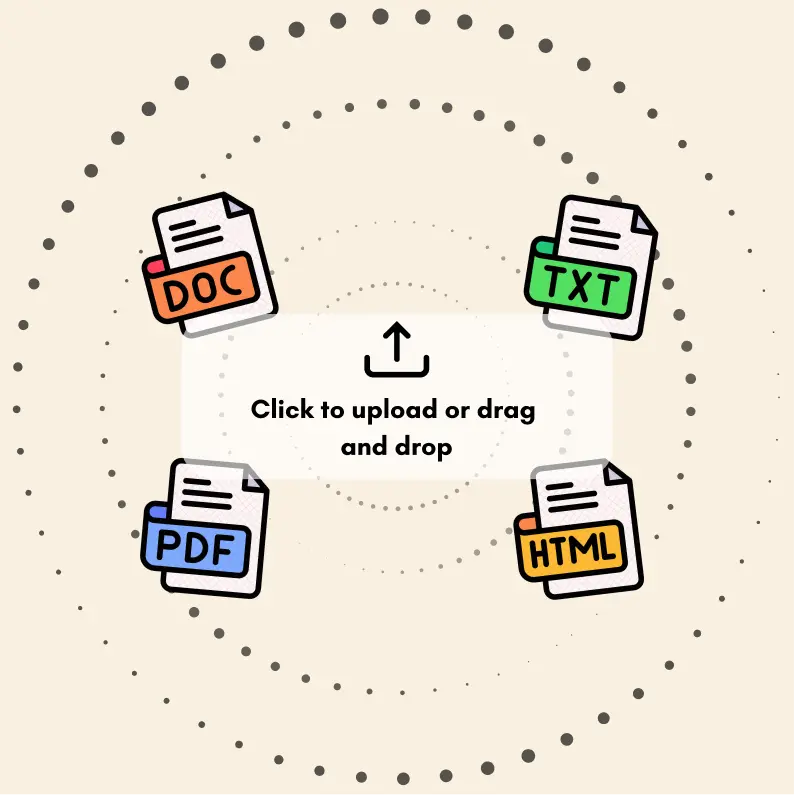
Transform Your Writing Process
Elevate your notes and documents with AI-powered assistance that helps you write faster, better, and with less effort
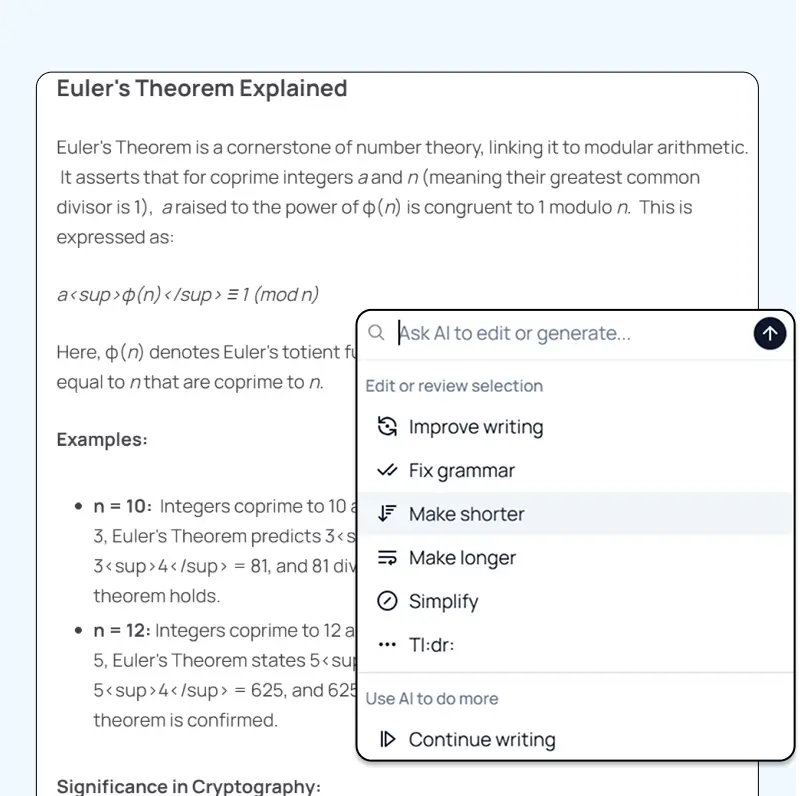
Unleash Your Visual Creativity
Transform ideas into stunning visuals with powerful AI image generation and editing tools that bring your creative vision to life

Accelerate Your Development Workflow
Boost productivity with an AI coding companion that helps you write, debug, and optimize code across multiple programming languages
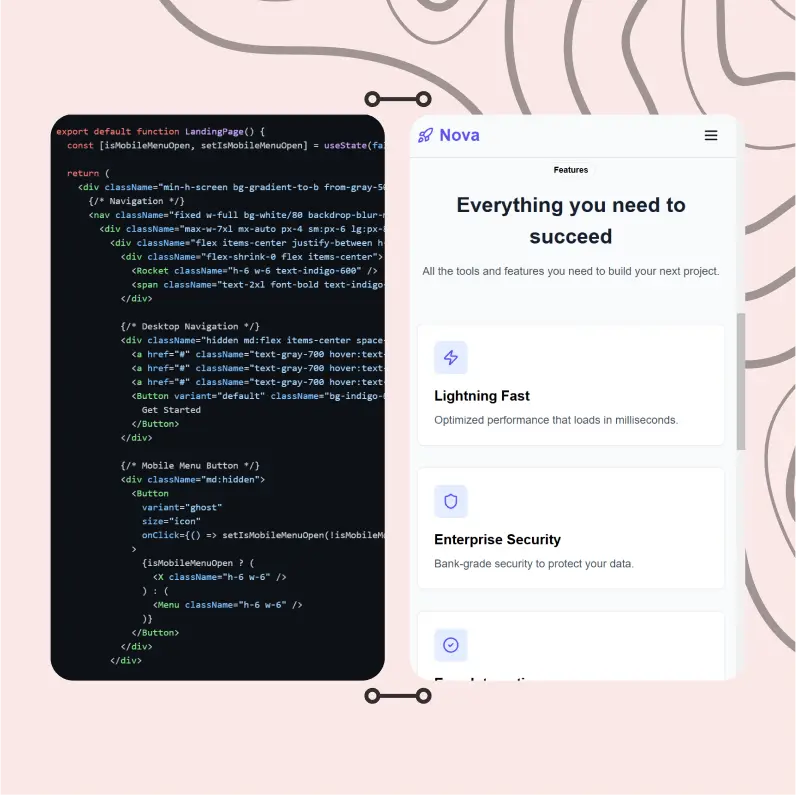
Powerful Tools for Everyday Excellence
Streamline your workflow with our collection of specialized AI tools designed to solve common challenges and boost your productivity

Live Mode for Real Time Conversations
Speak naturally, share your screen and chat in realtime with AI
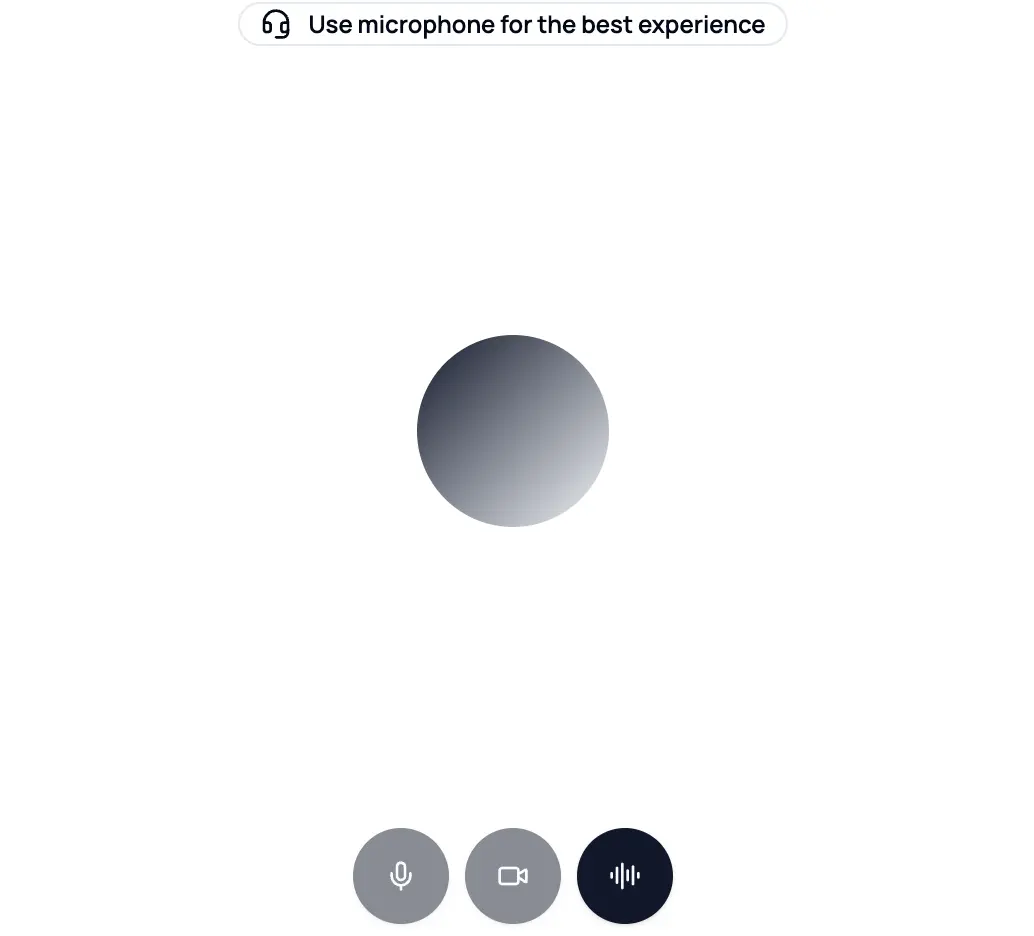
AI in your pocket
Experience the full power of Zemith AI platform wherever you go. Chat with AI, generate content, and boost your productivity from your mobile device.

Deeply Integrated with Top AI Models
Beyond basic AI chat - deeply integrated tools and productivity-focused OS for maximum efficiency
Straightforward, affordable pricing
Save hours of work and research
Affordable plan for power users
Plus
- 10000 Credits Monthly
- Access to plus features
- Access to Plus Models
- Access to tools such as web search, canvas usage, deep research tool
- Access to Creative Features
- Access to Documents Library Features
- Upload up to 50 sources per library folder
- Access to Custom System Prompt
- Access to FocusOS up to 15 tabs
- Unlimited model usage for Gemini 2.5 Flash Lite
- Set Default Model
- Access to Max Mode
- Access to Document to Podcast
- Access to Document to Quiz Generator
- Access to on demand credits
- Access to latest features
Professional
- Everything in Plus, and:
- 21000 Credits Monthly
- Access to Pro Models
- Access to Pro Features
- Access to Video Generation
- Unlimited model usage for GPT 5 Mini
- Access to code interpreter agent
- Access to auto tools
- 10000 Credits Monthly
- Access to plus features
- Access to Plus Models
- Access to tools such as web search, canvas usage, deep research tool
- Access to Creative Features
- Access to Documents Library Features
- Upload up to 50 sources per library folder
- Access to Custom System Prompt
- Access to FocusOS up to 15 tabs
- Unlimited model usage for Gemini 2.5 Flash Lite
- Set Default Model
- Access to Max Mode
- Access to Document to Podcast
- Access to Document to Quiz Generator
- Access to on demand credits
- Access to latest features
- Everything in Plus, and:
- 21000 Credits Monthly
- Access to Pro Models
- Access to Pro Features
- Access to Video Generation
- Unlimited model usage for GPT 5 Mini
- Access to code interpreter agent
- Access to auto tools
What Our Users Say
Great Tool after 2 months usage
simplyzubair
I love the way multiple tools they integrated in one platform. So far it is going in right dorection adding more tools.
Best in Kind!
barefootmedicine
This is another game-change. have used software that kind of offers similar features, but the quality of the data I'm getting back and the sheer speed of the responses is outstanding. I use this app ...
simply awesome
MarianZ
I just tried it - didnt wanna stay with it, because there is so much like that out there. But it convinced me, because: - the discord-channel is very response and fast - the number of models are quite...
A Surprisingly Comprehensive and Engaging Experience
bruno.battocletti
Zemith is not just another app; it's a surprisingly comprehensive platform that feels like a toolbox filled with unexpected delights. From the moment you launch it, you're greeted with a clean and int...
Great for Document Analysis
yerch82
Just works. Simple to use and great for working with documents and make summaries. Money well spend in my opinion.
Great AI site with lots of features and accessible llm's
sumore
what I find most useful in this site is the organization of the features. it's better that all the other site I have so far and even better than chatgpt themselves.
Excellent Tool
AlphaLeaf
Zemith claims to be an all-in-one platform, and after using it, I can confirm that it lives up to that claim. It not only has all the necessary functions, but the UI is also well-designed and very eas...
A well-rounded platform with solid LLMs, extra functionality
SlothMachine
Hey team Zemith! First off: I don't often write these reviews. I should do better, especially with tools that really put their heart and soul into their platform.
This is the best tool I've ever used. Updates are made almost daily, and the feedback process is very fast.
reu0691
This is the best AI tool I've used so far. Updates are made almost daily, and the feedback process is incredibly fast. Just looking at the changelogs, you can see how consistently the developers have ...
